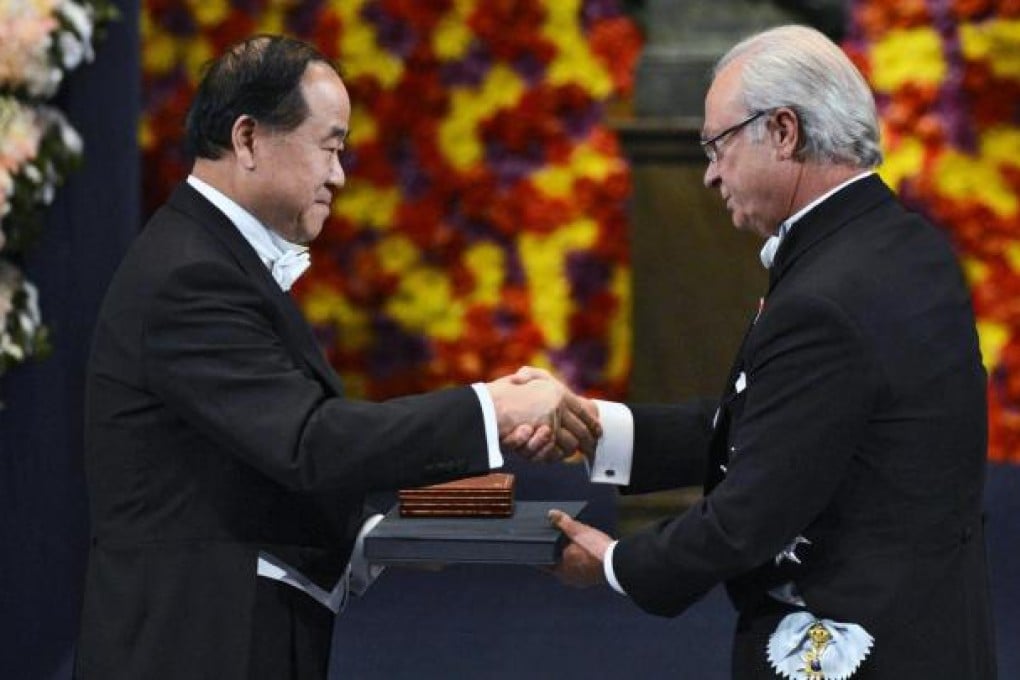
Mo Yan was given the Nobel Prize for Literature Award and a cheque for 8 million Swedish krona (HK$9.25 million) in a televised ceremony at Stockholm Concert Hall last night.
In a presentation speech, Per Wastberg, chairman of the Nobel Committee, described Mo as a poet who "tears down stereotypical propaganda posters".
"Using ridicule and sarcasm Mo Yan attacks history and its falsifications as well as deprivation and political hypocrisy," he said.
Wastberg cited Mo's novel Republic of Wine as an example.
"The irony is directed at China's family policy, because of which female foetuses are aborted on an astronomic scale: girls aren't even good enough to eat."
He also cited another novel, Big Breasts and Wide Hips, as an example of how Mo Yan had attacked official accounts of the Great Leap Forward and the Great Famine of 1960. "Instead of communism's poster-happy history, Mo Yan describes a past that, with his exaggerations, parodies and derivations from myths and folk tales, is a convincing and scathing revision of fifty years of propaganda."
Mo Yan appeared to be in damage-control mode on Sunday when he said that he resented any form of censorship. He had earlier been criticised for likening censorship to airport security checks.